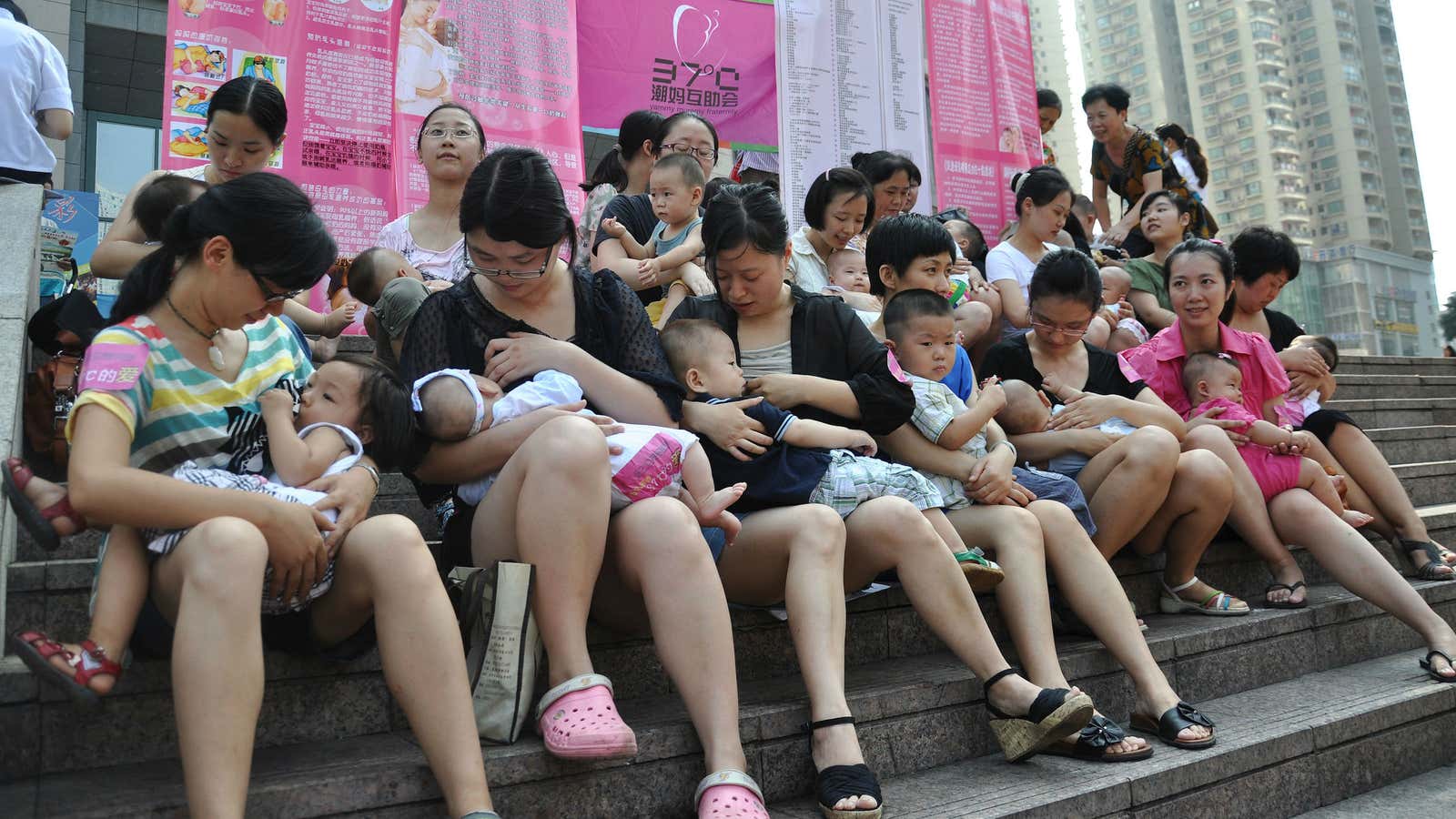Breast milk, which has already made its way into cheese in New York City and ice cream in London, is now a diet craze among wealthy health food enthusiasts in Shenzhen, China.
The province’s well-heeled are paying wet nurses up to 12,000 renminbi ($1,955) a month to supply them with breast milk to consume for its supposed health benefits, according to a report by the Chinese paper, the Southern Metropolis Daily, earlier this month. The average wage in Shenzhen, meanwhile, is about 4,000 renminbi. The report sparked ire among Chinese internet users. The majority of respondents in an online poll said services providing breast milk “violated ethical values.” Other bloggers said this was an example of the “moral degradation of China’s rich” and the treatment of women “as consumer goods.”
For years, Chinese public health officials have tried to increase breast feeding among the population that benefits most: mothers and their newborns. But they’ve failed to boost its consumption among the country’s less affluent and those less educated about the benefits to babies of breast milk antibodies.
Breastfeeding rates for children younger than six months in China are low, at about 28%, which is lower than the average of 36% in developing countries and much lower than the regional average of 43%, according to UNICEF. Meanwhile milk formula consumption has skyrocketed in the country. By law, Chinese companies give women 98 days of paid maternity leave, more than what’s required in the US. But many Chinese women can’t afford to take the time off, and when they do return to work most companies don’t provide nursing rooms, even though breast feeding in public is taboo. Aggressive marketing by milk formula companies hasn’t helped the breastfeeding rate.
As a result, the government is getting more aggressive. Last month, it teamed up with the United Nations Children’s fund to promote breastfeeding. Companies that have promised to support breastfeeding by their employees or customers include Baidu, one of China’s largest internet companies, and the Chinese operations of Swedish retailer IKEA. China also started a milk bank—though it is having trouble finding donors and some experts question its safety. In May, mothers in 40 cities across China staged flash mob public breastfeeding sessions.
